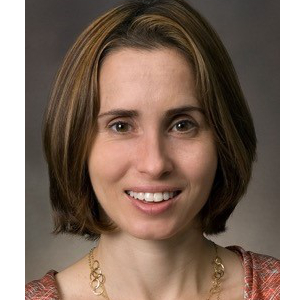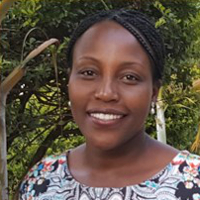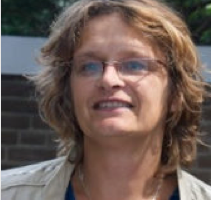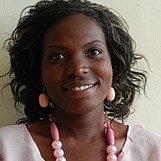The CHAIN Network is led by a core group of individuals that have, over the years, fostered and built solid foundations. With vision and perseverance, The CHAIN Network has recruited, one by one, accomplished researchers, doctors, nurses, as well as coordinators and other skilled staff to work together as teams with a common goal. The CHAIN Network leaders have extensive experience in running clinical trials in difficult settings and have been embedded within the communities they serve for years. The CHAIN Network will grow from these solid foundations.
Social & Behavioral Science
Acute illness and undernutrition in children usually occur against a background of social and economic disadvantage. It is conceivable that no amount of nutritional or anti-infective interventions will be effective in preventing longer term post-discharge mortality if key social constraints exist. CHAIN’s social science working group aims to understand the contribution of modifiable social factors to mortality and to other poor outcomes of acutely ill children, both in hospital and in the post-discharge period. In addition, the Network seeks to understand the true societal and financial costs associated with poor nutrition and acute illness.
Team

Kui Muraya

Sassy Molyneux

Haribondhu Sarma

Fakhar Uddin
Nutrition & Metabolism
‘Undernutrition’ encompasses a range of macro- and micronutrient deficiencies that usually co-exist. For children with acute illness, metabolic disturbances affect nutrient metabolism, energy production and cellular homeostasis, while enteropathy impacts nutrient absorption and growth recovery. Evidence suggests that glycogen depletion reduces tolerance to physiological insults, such as hypoxia, while interfering with basic cellular membrane function. These nutritional and metabolic deficits are potential reasons why malnourished children fail to cope with infection and are mechanisms that may cause death without preceding warning signs. The Nutrition and Metabolism working group seeks to identify a definable metabolic phenotype that leads to inpatient death and that may be amenable to novel intervention.
Team
Causes of Death
The causes of death among malnourished children are hard to elucidate and not well understood. The gold standard in establishing cause of death is to conduct post mortem studies but these are limited by social and cultural barriers. This working group focuses on the design of ethically and culturally appropriate tools to help improve acceptance of autopsy or of targeted tissue sampling in order to better understand the causes of death among children with acute illness and malnutrition.
Team

Wieger Voskuijl

Nicola Desmond

Donna Denno

Cornelius Huwa

Dave Namusanya

Peter Finch

Steve Kamiza
Respiratory Disease & Tuberculosis
Many clinicians suspect that undiagnosed tuberculosis (TB) may be responsible for many cases of acute illness and malnutrition. However, TB is notoriously difficult to diagnose in children. A significant proportion of inpatient and post-discharge mortality may be due to either occult undiagnosed TB or to incident TB that occurs in the setting of continued vulnerability and susceptibility. If TB is an important factor in acute illness among undernourished children, they may benefit from empiric tuberculosis treatment. The Respiratory Disease and TB Working Group aims to utilize the cohort follow up to determine the frequency of undiagnosed TB among malnourished children suffering from acute illnesses.
Team
Immunity & Invasive Infection
Children with malnutrition are at increased risk of life-threatening infection, even after therapeutic feeding. However, the nature of immunological dysfunction is unclear and only a small proportion of children with a sepsis-like clinical presentation have positive bacterial cultures. Using the CHAIN platform, this group will examine clinical data and tissue samples for evidence of invasive infection and impaired immune function associated with malnutrition. This work will lead to a better understanding of the sepsis-like presentment that appears to cause death in many acutely unwell malnourished children.
Team

Christina Lancioni

Agnes Gwela

Luke Uebelhoer

Ali Saleem
Enteric function & Infection
The enteric system is critical for the maintenance of normal immune function, and nutrient absorption. Alterations in the biology of the gut caused by pathogens or medical intervention may be associated with poor recovery from acute illness. The CHAIN Network’s Enterics group aims to understand the role of intestinal pathogens, enteropathy and gut microbiome in causing death and growth failure in acutely ill children in order to then target these with treatment interventions.
Team
Undernutrition in Infancy
Malnourished infants experience very high mortality and incidence of severe infections such as pneumonia and diarrhoea. However, nutritional rehabilitation guidelines for infants under 6 months are currently based on minimal evidence. This working group will describe the patterns and consequences of breastfeeding practices among children that are acutely unwell. In addition, they will determine how inpatient re-lactation and other breast-feeding support prevents further deterioration in child health.
Team

Martha Mwangome

James A Berkley 'Jay'

Christine McGrath
Neuro-cognitive Development
Malnutrition can impair neuro-cognitive development which can lead to extended disabilities and impact childhood survival. In low resource settings, little is known about the prevalence of neurodevelopmental disability. Therefore, the CHAIN Cohort will screen children with and without malnutrition to assess the burden and extent of disabilities. Validated, developmental screening tools and questionnaires will be used and children will be followed longitudinally to assess progression and association with hospital readmission and mortality.
Team
Implementation Science
The CHAIN Implementation Science working group is focused on understanding factors that influence the probability of deviations from pediatric treatment guidelines both in the literature broadly as well as in the CHAIN cohort data set. The team is completing these two pilot projects, while determining the longer-term agenda for larger implementation science projects of high priority to the Network.
Team

Kirk Tickell

Judd Walson
Coordination Team
The coordination team works to implement and harmonize The CHAIN Network’s research activities across sites while considering their specific capacities. The team manages all the background mechanics such as design and implementation of research tools (i.e. Case Report Forms and Standard Operating Procedures), laboratory processing and sample inventory, database and website management, finances, and progress reports. The team also oversees logistics and communication. Their main goals are to ensure that procedures are correctly implemented and to actively help troubleshoot with local partners to solve or mitigate issues.

Caroline Tigoi
Caroline is the head laboratory coordinator for CHAIN. She supports logistics and harmonizes lab procedures carried out across sites. She developed CHAIN’s detailed Standard Operating Procedures for all sample processing, and storage. She oversees all lab-related activities and is responsible for building the CHAIN sample bio-repository.

Kirk Tickell
Dr Tickell is responsible for supporting the design and analysis of research activities, including a range of sub-studies. He reviews the Cohort protocols, conducts baseline assessments for CHAIN sites and puts forth research proposals for new projects.
Martin Kamui
Martin is the Strategy and Planning Manager for CHAIN. He oversees all of the Network’s operations, finances and reports on the milestones.

Narshion Ngao
Narshion Matai Ngao is a Senior Data Manager as well as a certified project manager in PRINCE2. His background is in software development. Narshion did his bachelor’s degree of science in ICT management in Maseno University.

Moses Mburu
Moses Mburu is a Data Manager for CHAIN. He has a Bachelor of Science in Statistics from the University of Nairobi. His interests in research is in Data Analysis, Spatial Statistics, Machine Learning, Decision Science and Data Management. He supports research using tools such as R and Python languages in producing reports and automated dashboards. Prior to CHAIN he worked as a Data Analyst for Low Income Financial Transformations social enterprise focussed in understanding the finances of low-income communities.

Eunice Kahindi
Eunice graduated from Kenya Methodist University with a bachelor ‘s degree of science in Business Information Technology. She’s currently handling Data management activities for the Chain Network studies. She supports the research studies using R and Stata tools.
Leadership
The CHAIN Network is led by a core group of individuals that have, over the years, fostered and built solid foundations. With vision and perseverance, The CHAIN Network has recruited, one by one, accomplished researchers, doctors, nurses, as well as coordinators and other skilled staff to work together as teams with a common goal. The CHAIN Network leaders have extensive experience in running clinical trials in difficult settings and have been embedded within the communities they serve for years. The CHAIN Network will grow from these solid foundations.

James ‘Jay’ Berkley
Professor Jay Berkley is the co-Principal Investigator of the CHAIN Network with Judd L. Walson. Jay is based full-time at the KEMRI/Wellcome Trust Research Programme in Kilifi, Kenya.

Judd L. Walson
Dr. Judd Walson is co-Principal Investigator of the CHAIN Network and a Professor at the University of Washington in Seattle. He completed his Internal Medicine and Pediatrics training at Duke University, and his fellowship in Infectious Disease at the University of Washington.
Advisory Committee
A panel of experts provides high level oversight and guidance to the CHAIN Network through the CHAIN Advisory Committee. With expertise across policy, nutrition programming, clinical management and research, the CHAIN Advisory Committee routinely review the objectives and progress of the Network and provide critical linkages to global stakeholders working to improve pediatric survival and development.

Saskia van der Kam
Saskia van der Kam is a specialist in nutrition from the Netherlands that is currently working in the Public Health Department of Médecins Sans Frontières (MSF). She has more than 25 years of experience engaging with various organizations that distribute emergency aid to developing countries, and often during crisis.

Mark J. Manary
Dr. Mark J. Manary, is a pediatrician currently appointed as the Helen B. Roberson Professor of Pediatrics at Washington University School of Medicine, in St-Louis. He has dedicated his career to “solving malnutrition in children” and the clinical use of ready-to-use-food (RUTF) is a product of that ambition.

Nigel C. Rollins
Dr. Nigel Rollins trained as pediatrician at Queen’s University, in Belfast, Northern Ireland. He completed his doctoral research in Tanzania before going to South Africa where he lived and worked for 14 years.












